A handful of enterprising urban farmers in the city and close environs are reclaiming city lots in some of the city’s most economically-deprived neighborhoods and turning them into small working farms.
As the city of Youngstown has shrunk from 170,000 residents to fewer than 65,000 from the 1950s until present day, according to Atlantic Magazine and numerous other sources, the housing stock has noticeably deteriorated. But now, occasional bright green spots are defiantly rearing up out of the urban decay. Individuals, families, nonprofits, the Ohio State extension and the city itself are all contributing to this movement, acting the same way on the city as microscopic change agents work on soil to make it fertile. “We have definitely seen growth in locally-produced food,” said Melissa Miller, who runs the Lake to Rive Food Cooperative. The co-op serves and draws from farmers in an eight-county area that includes Mahoning County.
“We have seen a rise in niche products,” coming from these small, lot-sized farms, Miller said. These include Avant Garden, a mushroom farm in downtown Youngstown, and Unabandoned, a two-lot herb farm that, among other products, makes essential oils out of their herbs and Avant’s mushrooms. “We called ourselves ‘Unabandoned’ because we took over two abandoned city lots,” said Emily Hayes, who works the lots with other family members. “We kind of started out as ‘street pirates’,” she said, growing on abandoned land that eventually became theirs “cheap. Like in the hundreds of dollars.” Hayes said that the farm works well in the neighborhood, spreading healthy food and information to local, inner-city residents. “They really like us being here,” she said. Unabandoned sells its products at various farmer’s markets in the area. Unabandoned is on Facebook. The Unabandoned family recently hosted 35 members of the Green Riders bike club, which traveled around the country this summer “to help make the world a greener and more sustainable place”. The Green Riders can be found here: http://robgreenfield.tv/greenriders.
Sophia Buggs has a full-scale farm on several south side city lots that she calls “Lady Buggs Farm.” Lady Buggs Farm sells a range of products beyond produce, including salad dressings. In an interview last year with Truthout, Buggs said "my mission is primarily to make the world a much more vibrant, healthy space, to make the soil better than when I found it and make the people better than when I discovered them." She explained how she is a fourth-generation grower with strong ancestral ties to the land. Lady Buggs Farm is on Facebook. That Truthout article also covered other communities who are seeing the revitalization of neighborhoods through urban farming from Baltimore to Oakland. To read the full story from the Akron legal News, click here.
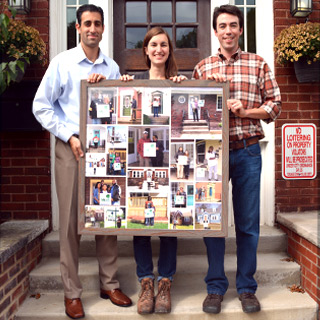

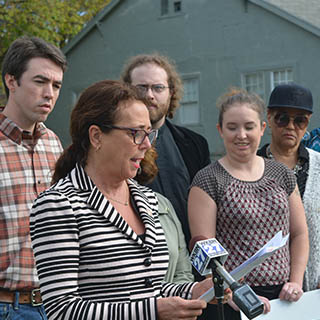 ,
, 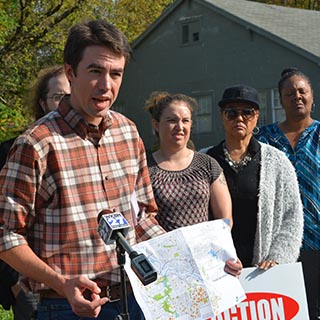 ,
, 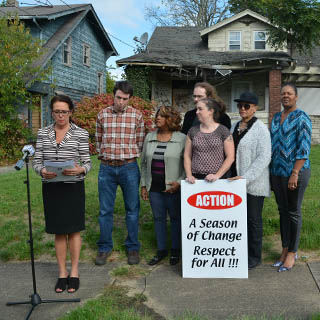 ,
, 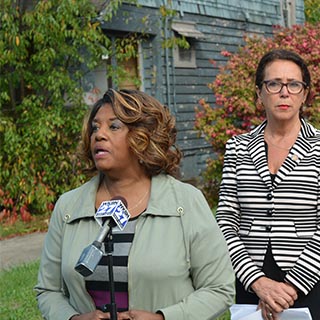
 ,
,  ,
,  ,
, 
